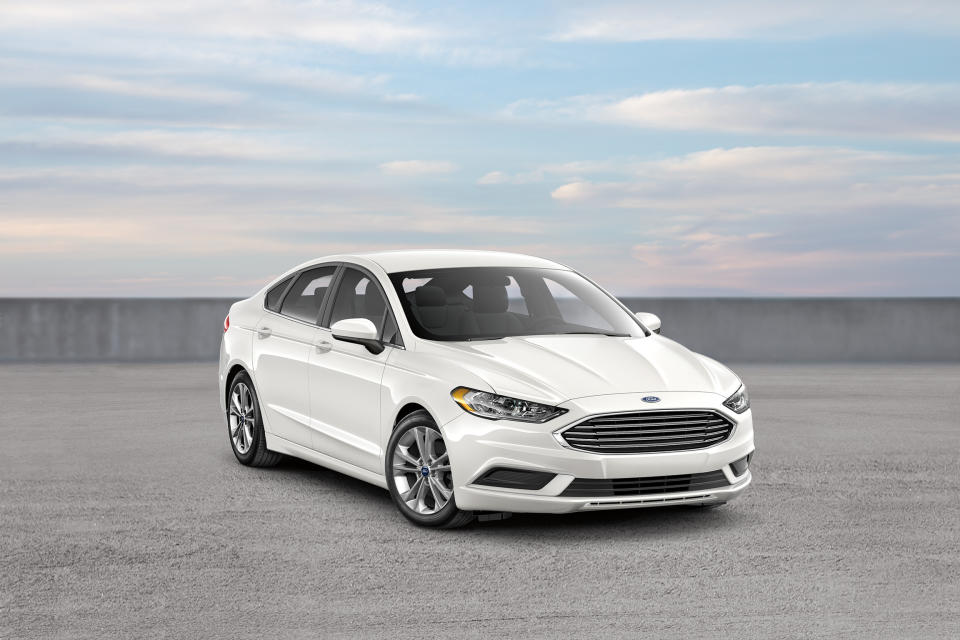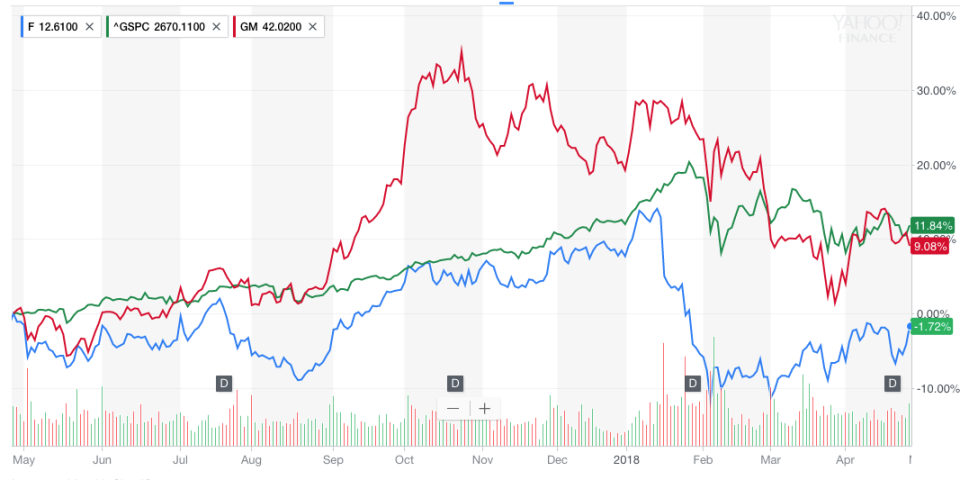Ford might regret killing its cars
Ford Motor Co. (F) seems to be earning plaudits for a bold move: Retiring all the passenger cars in its lineup except for the beloved Mustang and a Focus subcompact that’s really a crossover.
The boring old family sedan has fallen out of favor, as buyers flock to cooler crossovers and hulking SUVs. Ford has struggled to move sedans such as the roomy Taurus, the midsize Fusion and the economical Focus. So CEO Jim Hackett says that instead of forcing these unloved vehicles on buyers, Ford will stop selling them in North America altogether as current models reach the end of their life span over the next few years. The company won’t comment on Lincoln, but since Lincoln sedans are basically fancier versions of Fords, it stands to reason those luxury sedans will disappear as well.
Smart? Or desperate? Maybe a little of both. Ford has been under pressure to boost long-term profitability and goose its stock price, which is down 10% this year. And the company says offing its passengers cars will help save $26 billion by 2022. But by attempting to cut its way to greatness, Ford is ceding what remains a large slice of the market to competitors.

Coupes and sedans have been losing market share to crossovers and SUVs, but passenger cars still account for one-third of all vehicle sales. If you set aside pickups—which tend to serve as work trucks rather than family vehicles—passenger cars are 40% of all sales. LMC Automotive forecasts that passenger car sales will continue to drop, falling to just 26% or the market by 2023. But that’s still a big segment to walk out on, especially given how hard automakers fight for tenths of a point of market share.
Wider variety of SUVs
Most automakers, including Ford, have been rapidly filling every niche in their lineups of crossovers and SUVs, so there are now many smaller, less expensive models with good fuel economy, in addition to the Ford Expeditions and Cadillac Escalades of the world. So there’s less need than there used to be to keep unprofitable compact cars on the menu, in case gas prices surge. If that happens, buyers interested in a Ford will be able to trade down from the Explorer SUV or the Edge crossover to the Ecosport, a new crossover that starts at around $20,000 and averages a thrifty 28 miles per gallon.
But sedans serve other important purposes in an automaker’s lineup, which Ford is apparently willing to sacrifice. Since sedans sit lower than crossovers, some drivers simply prefer them for ease-of-entry. All things equal, a sedan will generally handle better than a crossover, as well, simply because it’s lower. Automakers can add equipment to crossovers to even out the difference, but that costs money. The standard-setters for performance will always be low-sitters, simply because physics favors them.

Automakers have also learned that the best selling strategy is to have compelling products in every segment, so that lack of availability will never stop a buyer from coming to your showroom. A buyer on a budget might go to a Honda dealership to check out a Fit or Civic compact, but notice the HR-V crossover and end up taking that home. That same buyer might never even visit a Ford showroom if Ford doesn’t have a small sedan, and therefore not even discover the Ford crossover that might do the trick.
Most automakers now have sedan and crossover pairs that share components, with one model often being a modified version of the other. The Honda HR-V crossover, for instance, shares underpinnings with the Fit. The Toyota Highlander crossover typically shares a lot of DNA with the Camry sedan. This is a key source of efficiency that allows automakers to scale costly components across a range of models, and do so all around the world. Automakers can then adjust production volume of one model or the other based on demand, without bearing unusual costs for a single-use platform that underperforms.
Ford does this too. The Fusion sedan and Edge crossover have similar underpinnings, for instance. Same with the Taurus sedan and Explorer SUV. But Ford seems to be signaling it can’t achieve efficiencies other automakers can by spreading components across crossovers and passenger cars, if one segment undersells. Ford is downsizing from 9 underlying platforms for all of its models worldwide to just 5, but that alone doesn’t mean cars have to go. So there may be some other reasons for the move Ford isn’t disclosing.
One other big automaker, Fiat Chrysler (FCAU), is going in Ford’s direction, so far. The company’s Chrysler division has just one passenger car left, the geriatric 300 sedan. Dodge, another Fiat Chrysler division, killed its only mainstream sedan a couple years ago and now only sells muscle cars and light trucks. That’s not necessarily a good omen, for Ford, however. Those two Fiat Chrysler divisions are among the weakest of any large automaker, with the company’s powerhouse Jeep division largely sustaining the whole company. Fiat Chrysler CEO Sergio Marchionne has repeatedly tried to interest other automakers in a sale or merger.
Ford’s move might be prescient. It might be jumping off a ship with a few leaks that will turn into gushers. But killing its cars might also be a self-reinforcing admission of brand weakness that helps strengthen competitors in perhaps the toughest segment of the market. Whatever the outcome, the Toyotas and Hondas of the world seem sure to gain a few more customers, at Ford’s expense. And probably make money on them.
Confidential tip line: [email protected]. Click here to get Rick’s stories by email.
Read more:
Why a “Democratic wave” could harm stocks
Rick Newman is the author of four books, including Rebounders: How Winners Pivot from Setback to Success. Follow him on Twitter: @rickjnewman
Follow Yahoo Finance on Facebook, Twitter, Instagram, and LinkedIn
